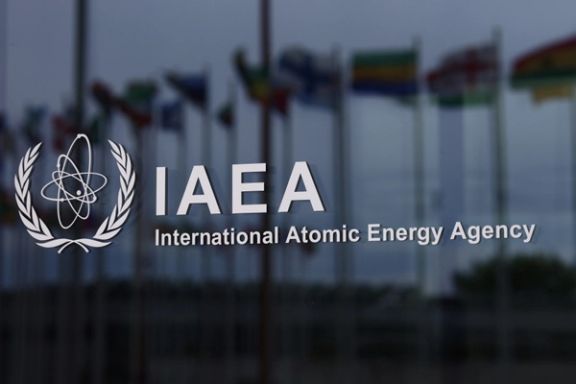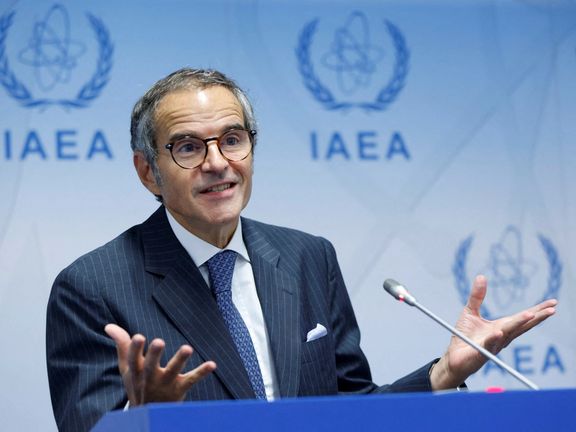Iran Must Rescind Decision To Bar UN Nuclear Inspectors – US, E3, IAEA

The US and three European allies have condemned Iran’s move to bar IAEA inspectors assigned to the country as another step in the wrong direction.

The US and three European allies have condemned Iran’s move to bar IAEA inspectors assigned to the country as another step in the wrong direction.
The United Kingdom, France, Germany -- the so-called E3 -- and the US issued a statement Monday, a few days after the UN nuclear watchdog announced that Iran has withdrawn the designation of several UN inspectors assigned to conduct verification activities in Iran under the Non-Proliferation Treaty Safeguards Agreement.
Having arrived in New York for the UN General Assembly, IAEA director Rafael Grossi told Iran International’s Arash Alaei Monday that he hopes to meet with Iranian officials “to see if they can regress” this unconstructive move. “I was very critical of this move... it was not constructive; it’s not a step in the right direction. it's not good."
He added that the only way that Iran could dispel any doubts about its nuclear program is to allow the IAEA to inspect, noting that “If they allow us to work, then there will be confidence; otherwise, it will be very complicated.”
Via a rare public statement, International Atomic Energy Agency's Rafael Grossi had decried Iran's "disproportionate and unprecedented" move on September 16, saying that it hinders IAEA oversight of Tehran's atomic activities. Tehran was showing displeasure in the face of a threat by the US and the E3 of another resolution to censure Iran for lack of cooperation with the IAEA.
In their Monday statement, the US and its allies said, “Iran’s actions will undermine the Agency’s ability to carry out its safeguards mandate effectively,” which constitutes an unnecessary blow to an “already strained relationship between the IAEA and Iran”.
Expressing concern over Iran expanding its nuclear activities, and its deliberate hampering of IAEA’s verification and monitoring activities – mandated under Iran’s NPT Safeguards Agreement, the US and E3 joined Grossi in strongly condemning "unilateral” measure.
“This is at a time when the IAEA has serious, longstanding, and unresolved questions related to undeclared nuclear materials and activities in Iran that Iran has failed to address for more than four years.”
They urged Tehran to “immediately reverse these inspector de-designations and fully cooperate with the Agency to enable them to provide assurances that Iran’s nuclear program is exclusively peaceful.”

On Sunday, the European Union also urged Iran to reconsider its decision, with the spokesman for EU foreign affairs Peter Stano saying, "The European Union is highly concerned by the ... decision by Iran to withdraw the official designation of several experienced IAEA inspectors to monitor and verify its nuclear program."
"Particularly worrying is the direct and severe impact of this decision on the Agency's ability to conduct its verification activities, which includes the monitoring of the Joint Comprehensive Plan of Action. The EU urges Iran to reconsider its decision without delay," the statement said.
Earlier in the day, US Secretary of State Antony Blinken acknowledged the threat posed by Iran’s nuclear program during a meeting with foreign ministers of the Persian Gulf Cooperation Council member states, who are also in New York for the UN summit.
“We’re cooperating to deter Tehran’s aggression and destabilizing activities, including the threat posed by its nuclear program,” he said, adding, “And we’re working to uphold freedom of navigation, such as through a multinational task force that is protecting ships in the Strait of Hormuz.”
In June, the US Naval Forces Central Command hosted a two-day multilateral maritime security meeting for 90 senior military officers and diplomats from 22 nations, including GCC member-states. The counterterrorism working group and the Iran working group are two of the most active bodies set up under the umbrella of GCC-US partnership.